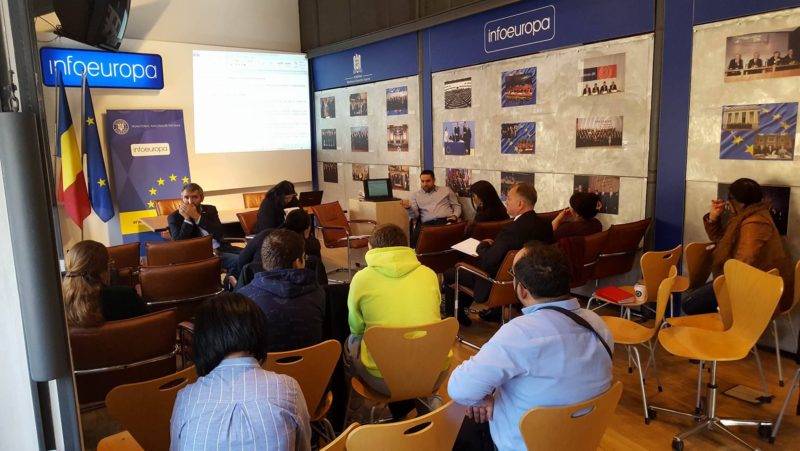Message from the event “Countering Shrinking Space for Roma Civil Society’ to the European Roma Platform
On November 29, ERGO Network organised a public event to discuss the ‘Shrinking space of Roma civil society’, which was co-hosted by MEPs Terry Reintke (Greens/EFA) and Tomáš Zdechovský (EPP). Over 80 people participated in the meeting. One of the conclusions is that there is a squeeze on available funding for work that is not strictly oriented to the provision of social services: advocacy, watchdog work, civil monitoring, community empowerment and activism. Shrinking space of civil society is a trend in Europe, but hits hard on Roma organisations, as they are scarcely equipped and often struggling for survival.
The 2nd EUMIDIS report issued by the Fundamental Rights Agency on 29 November confirms that Roma are still Europe’s most discriminated and disliked minority and their position in society has not improved in the past 5 years. Obviously, EU policies and funding has not brought the much needed change in the lives of Roma. Research shows that 80% of the Roma live below the poverty threshold. In fact, many are the poorest of the poor – living in 3rd world enclaves – and their position is worsening. Despite some positive examples, most EU funding does not reach out to Roma and often confirms the second-class citizen status. Exclusionary patterns first needs to be tackled in order to make (EU) policies work and to prevent that tax-payers money is wasted.
One of the main challenges of Roma inclusion policies is to ensure Roma and Roma organisations are actors in the policy process, not subjects. Weak policy delivery goes hand in hand with the lack of active and independent civil society. Change on the ground will only come about when Roma communities and organizations are capable of holding municipalities, school authorities and businesses accountable for their performance and when they are equipped to monitor policy processes targeting them.
ERGO Network’s message from its public event to the EU Roma Platform meeting is that (pro) Roma civil society has a huge role to play to hold (local) governments accountable and involve themselves in policy processes as respected actor. This requires dedicated and flexible support to equip them to take such role and there is urgent need for funding of independent watch-dog organisations. And, policy makers need to take a pro-active role to take the expertise of civil society into account in the policy dialogue and assessment.
Also, at grassroots level Roma need to be supported to participate in and benefit from social inclusion interventions. Guiding principle in policy delivery should be that Roma themselves should take an active role to accomplish equal citizenship on all levels, from local up to European. EU funding will only be absorbed in a right and just manner, if people targeted are empowered and equipped to access and direct this funding. Roma civil society can monitor the outreach and impact of (EU funded) programmes by showing the perspective of the beneficiaries on the ground.
The mutual accountability can only work if civil society actors are equipped as watch-dog organizations. In order to ensure the independence and safety of civil society to keep governments accountable, an EU-led funding stream should be in place offering long-term, independent and flexible support. In the long term, this will make EU programmes more effective and fair, thus generating an interesting return on investment.
Moreover, in policy making, where possible, independent monitoring and evidence should be used. Including information from civil society in review processes can help provide objective evidence, increase transparency and bring important political points of view. It is enormously important to hold a mid-term evaluation to prepare the ground for the post-2020 Roma policy. Mutual accountability is, by its very nature, a political process rather than a technical exercise. An independent group with a formalised advisory status should be in place, as such does not exist in the EU, as well as support for shadow reporting by civil society organisations (that has been initiated by DG Justice, but not yet conducted). As a result, no frame is provided for civil society to give an organised input into the yearly reporting exercise on the implementation of the EPSCO Council Recommendations of 2013.
To conclude, Roma civil society is facing shrinking space, which is a reality for civil society at large. Taking into account the precarious position of Roma in the society, more firm and dedicated measures are needed. The prevailing antigypsyism is a barrier for efficient policy implementation. This needs to be acknowledged and taking into account as precondition in the design of all future initiatives and policies.





